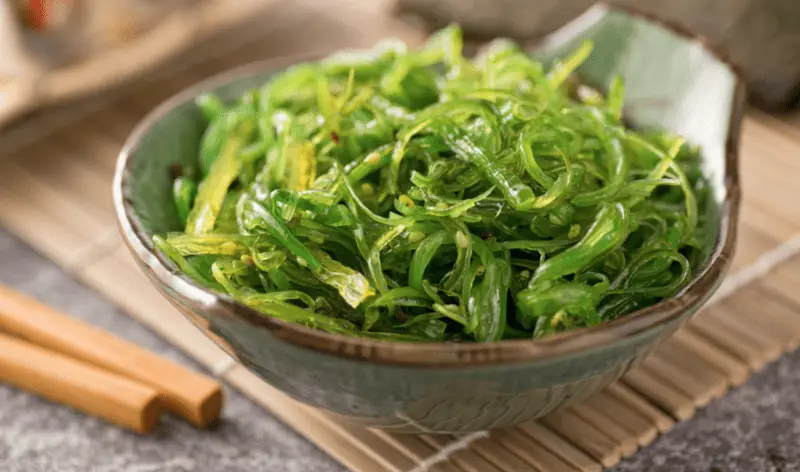When I say, “kelp,” you say…
If “gross” or “slimy” are the first words that come to mind, read on and let me introduce you to the wonderful world of flavor and health that this gorgeous sea green has to offer.
Kelp is a type of seaweed that boasts health benefits and provides variety in the kitchen. From the nori wrapped around your California roll to seaweed snacks, kelp is a culinary king of algae.
Kelp is rich in many of the key minerals and vitamins that our bodies require, and it boasts many significant benefits from anti-aging and hormonal balancing properties to protecting thyroid health. It contains natural fiber, alginate, which helps to block fat while eliminating the fat absorption in the gut. Kelp is a rich source of iodine, vitamins B12, K, A, and the minerals magnesium, iron, molybdenum, manganese, and copper.
Here’s what you need to know about the health benefits of kelp.
What is Kelp?
Kelp is a large brown algae or seaweed, which grows in saltwater. It thrives in shallow waters closer to the shore and grows in dense groupings. It is a significant part of the underwater ecosystem as it provides food and shelter to many fish and other marine species. It is among the fastest-growing plants, which means it is easily replenished and less likely to absorb pollutants if harvested routinely.
Benefits of Kelp
Some of its potential health benefits include:
- Supports Thyroid and Breast Health. Kelp is among the richest natural sources of iodine. Iodine is significant when it comes to the production of thyroid hormone and prevent hyperthyroidism. It is an essential element that helps in the regulation of hormonal functions and enzyme activity throughout the body. Adult recommended daily intake of iodine is about 150 mcg; however, the needs may be higher if you are pregnant or breastfeeding.
- Supports Balance (blood sugar, weight, and inflammation). Fucoxanthin is a compound found in kelp and other brown seaweed. Studies show that it helps support weight loss, balances blood sugar, and reduces systemic inflammation. Besides fucoxanthin, kelp has an impressive omega-3 content that may help reduce anxiety and depression while lowering inflammation and protecting against heart and brain issues. Research has also shown that kelp has potent cancer-fighting capabilities, acting as a powerful anti-inflammatory.
Break kelp into pieces and add them to soups and stocks. Larger pieces can be strained out, but kelp is edible and adds a deep salty flavor that many enjoy. Powdered kelp can also be used in place of salt. Shake some onto salads, veggies, or anywhere you would add a dash of salt. Kelp is anti-inflammatory, hormone-regulating, blood-sugar stabilizing, weight balancing, cancer-fighting goodness from the sea!





